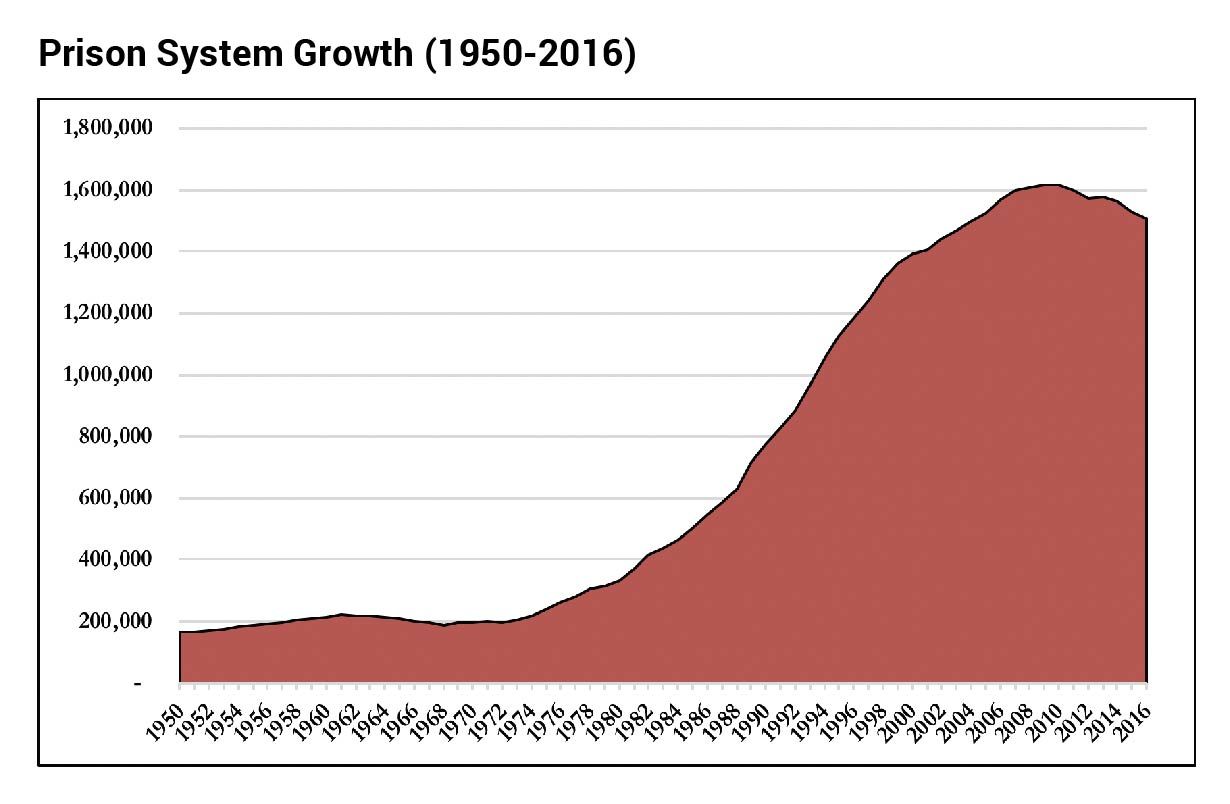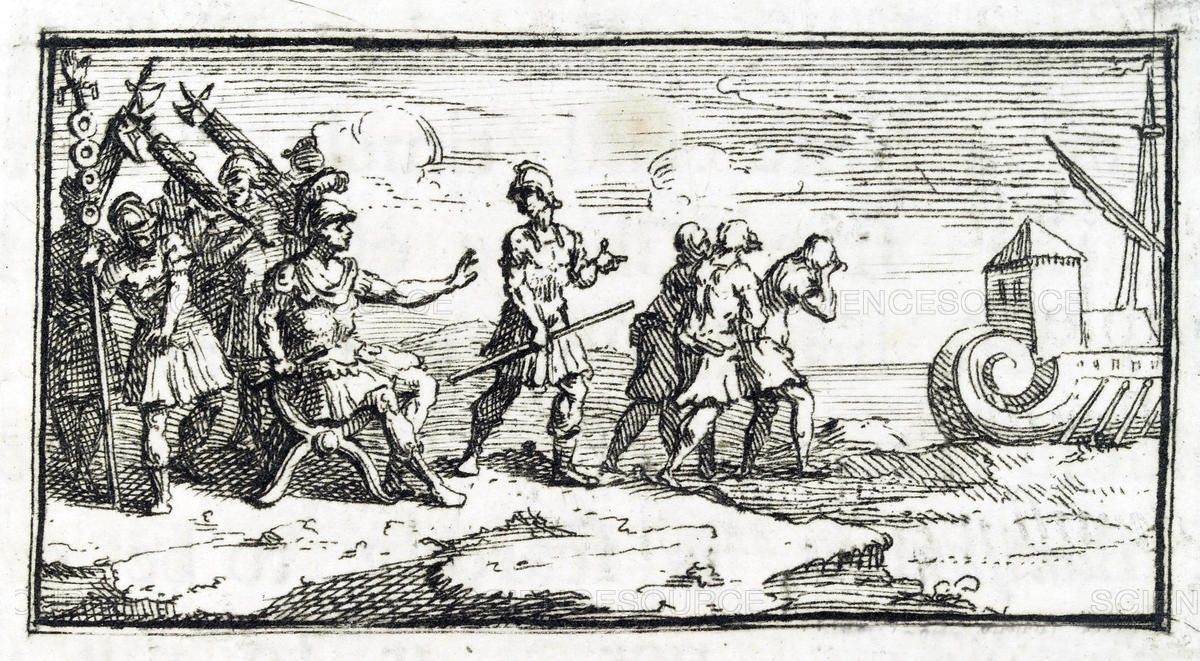Throughout the ages, various forms of punishment have been applied to those who break the rules by which a given society lives. Incarceration, forced labor, fines, exile, corporal punishment and the death penalty have been the most popular methods by which the ruling class demonstrate to the masses their power to enforce the law.
The morality of certain types of penalties has been questioned numerous times. Even today, flagellation and capital punishment are important parts of some countries' legal systems. These are, of course, usually reserved for the most severe crimes, such as murder, but are often applied to more mundane mischiefs like adultery and anti-government activities, as is the case in countries with Sharia-based laws.
The Prison Industrial Complex
One form of punishment, however, is so ubiquitous and "normal" that people rarely question it at all. In most countries, incarceration is the most popular way of doing away with criminals. So much so, that the Prison-Industrial Complex is now a thing. The name itself should lead you to a simple conclusion: the whole thing is one big business. And businesses thrive when they have many "customers".
The clearest example of this is the United States, a country that has by far the largest inmate population in the world.
"Simply put, it is shorthand for the fact that the U.S. incarcerates more people than any nation in the world, including China. And the U.S. is also the leader in the prison population rate. America’s approach to punishment often lacks a public safety rationale, disproportionately affects minorities, and inflicts overly harsh sentences."—Brennan Center, The History of Mass Incarceration

No wonder. Business has been doing well. And so have the companies that take advantage and are part of the Prison Industrial Complex. Food producers, restaurant chains, clothing manufacturers, telecommunications companies and even investment shops all rake in this massive industry.
"401(K) or other investments are held by Fidelity, and, in some cases, some of your money invested by Fidelity is used for prison labor or in other operations related to the prison industrial complex. The investment firm funds the American Legislative Exchange Council (ALEC), which has created laws authorizing and increasing the use of inmates in manufacturing."—12 Major Corporations Benefiting from the Prison Industrial Complex
It is crony capitalism 101, a system of perverse incentives that results in the suffering of millions of regular people. Consider Ross Ulbricht who is widely regarded in the bitcoin community as a martyr. He is currently serving a double life sentence without parole for running a website. Yes, The Silk Road was a marketplace for illicit goods and services, but even if you are on the side of law on this issue (facilitating drug trade is illegal), can you justify sending a young programmer with no criminal record to prison for life for a non-violent offence? Of course, Ross was made an example of: he was inconvenient and, thus, removed from society forever. The State wanted to send a clear message to the rest of us—do not dare even think of defying our power. You can see Ulbricht's real intention, however, from his letter on Bitcoin's 10-year anniversary.
"Bitcoin needs us to continue guiding it with the values it was founded on, that gave it its potential. We must keep our focus on decentralization, privacy and empowering individuals. We are Bitcoin’s advocates and representatives. How far it goes and what it becomes in the crucial years ahead will depend on us. It is a technology with the power to make abstractions like peace and equality into reality. But it’s up to us to embody such ideals and be role models for the ever-growing Bitcoin community and for Bitcoin itself."—Ross Ulbricht
Do not forget the fact that prison sentences have little effect on a person's behavior post-incarceration. Recidivism is a well-known phenomenon corroborated even by government researchers. To put it simply, confining a criminal to a limited-space facility with rigid rules, together with other criminals, does very little to re-educate such a person. A lot of inmates, upon release, become repeat offenders.
The Old Way Is the New Way
A lot more can be said about jails and how they are an inefficient and, often, unjust way to enforce laws. But this post focuses on another method of punishment that was popular in the age of city-states—exile. As we aim to re-create the city-state model with our citadels, we must take into consideration approaches to law enforcement that may be more suitable in our case. You did not think that the citadel of the future is a place with no laws, rules or punishment, did you? Because that would be silly.
The Foundation of Exile
What is exile? Merriam Webster helps.
ex·ile | \ ˈeg-ˌzī(-ə)l , ˈek-ˌsī(-ə)l \
1a: the state or a period of forced absence from one's country or home
1b: the state or a period of voluntary absence from one's country or home
2: a person who is in exile
As you may have guessed, we are interested in definition 1a. In this case, we can also use the word banishment.
The foundation of this type of punishment is a social and psychological phenomenon called social ostracism. We humans are social beings and are unlikely to survive on our own. This behavioral feature was adopted from our mammalian predecessors who live in packs. In the animal kingdom, ostracism means guaranteed death. Thus, a pack would drive away an undesirable or non-conforming member to keep its stock strong.
The homo sapiens was not much different. We continued practicing social ostracism all along, and when our forms of societal organization became more advanced, the practice was formalized in laws and rituals.
"Ostracism among humans was first known to be occurring in Athens more than 2,000 years ago, where citizens voted to expel individuals by writing the nominated individual on ostraca—shards of pottery."—Ostracism
Compared to today's interconnected world of many cities and fast means of travel, the lifestyle of yesterday's humanity was quite different. Except for nomadic tribes, who spent all their lives moving from place to place, there was no such thing as an international citizen. We were far more likely to be born, spend our lives and die in the same place. Even merchants who had to travel for months at a time cherished the place they came from. Whatever its drawbacks or advantages were, homeland was a place of pride and belonging. Being cast out of the motherland did not only present a physical threat to the individual but incurred severe psychological suffering.
"Humans are social creatures who rely on bonds with others to fulfill fundamental social, psychological, and survival needs. Even when strangers in a minimal interaction context ostracize individuals for a very short time, ostracized individuals show signs of distress and report that their needs have been thwarted. The negative reactions to being ostracized are immediate and robust."—Ostracism
Echoes From the Past
As a punitive practice, exile was adopted mostly for severe crimes, although political reasons were used to enact it as well. In ancient civilizations, crimes like murder often led to capital punishment. However, sometimes, communities employed banishment instead of execution. Which shows that forbidding entry to one's homeland was considered as harsh a penalty as a death sentence, if not more so. After all, if you are executed, this is the end of the story. But if you are sent to exile, you have to spend the rest of your life in fear of physical danger and in a state of psychological suffering. In some cases, the condemned could choose between the two.

"In Rome, exile (exsilium) arose as a means of circumventing the death penalty. Before a death sentence was pronounced, a Roman citizen could escape by voluntary exile."—Encyclopaedia Britannica
A famous example of political exile is that of Cosimo de' Medici, who, in 1433, was banished from his home in Florence for ten years and had to do business remotely during that time. Being notoriously industrious, eventually, he managed to make his way back to the city-state and return the favor.
"Bribes and well-placed friends save him from death. He is exiled for ten years, but from Venice he controls a Florentine party working for his return. It is only a year before they succeed. Cosimo is invited back, and his rivals are banished - more effectively - for life."—History World
A Return to Tradition
Why would our citadel prefer exile to imprisonment?
The answer lies in the fact that a citadel is a private city whose citizens are its paying customers. There is a real enforceable contract between the managing company and the inhabitant that guarantees, in return for a subscription payment, core services like protection, emergency response and garbage collection. The number of laws in such a contract is extremely small, focused almost exclusively on the basics of living together in a laissez-faire manner, making the citadel's governance model resemble a minarchy. Compared to your average nation-state, there are not many rules that you can break to be thrown in jail (remember that the majority of the inmate population is confined for non-violent offenses). Thus, most administrative misdeeds can be dealt with economically: fines, penalties and a red flag in the customer profile.
But what about crimes like theft or murder? As these violate the non-agression principle, the foundation of peaceful coexistence in our citadel, it is only natural that such acts must be persecuted. Nobody canceled justice. Private courts, arbitration and detective agencies will fill the role in this regard.
In case of a robbery, settlement as part of punishment may be possible. One thing is certain, though: termination of the service agreement followed by exile from the citadel. If that sounds harsh, consider today's Singapore that utilizes the zero-tolerance policy successfully both for grave crimes, like drug trafficking, and small misdeeds (spit on the street and get a $300 fine). Additionally, by defying the current COVID-19 quarantine rules, you may be stripped of your residency permit or citizenship, i.e., banished from the city. The result of this approach? Crime rates are extremely low compared to other countries.
As for severe crimes like murder, exile is guaranteed. However, is it enough? Will you not be releasing the murderer into the rest of the world? There may be various solutions to this. For example, if our citadel is based inside another nation (a host nation), then the criminal can be persecuted and punished according to that country's laws. If we are an entirely sovereign entity, we can have our own small, highly secure prison specifically for crimes of this sort. But this has to be clearly written in the service agreement, agreed on and signed by the prospective murderer himself. Capital punishment is not out of the question either, if that flavor of citadel finds enough support. The more private cities, the more market solutions. Only time will tell which one will be the most effective.
In a world of thousands of citadels, I can foresee a number of places around the world collectively called the Wasteland, which have no formal governing bodies and rules. A lot of the time, a homicidal maniac, upon expulsion from the citadel, will find himself in a place like that, because the doors of the other settlements will be closed for him. The Wasteland is, then, a true wretched hive of scum and villany. But that is only my imagination. Care for a separate post on it later?
Trial and Error
In this article, I have described how exile may be a superior form of punishment to commonly-used imprisonment. It is reserved only for harsher crimes like those that violate the non-aggression principle (theft, assault, murder) as well as instigation thereof. At the same time, non-violent offenses can be managed with administrative penalties, with only repeat offenders who refuse to follow their contractual obligations, being banished from the city.
All in all, years of work will show, through trial and error, how various systems of private law will develop across the globe, and what methods of punishment will prove more successful. One thing we know for sure is that the current model is due for a major revamp.
Citadelium is the way of the New World.

